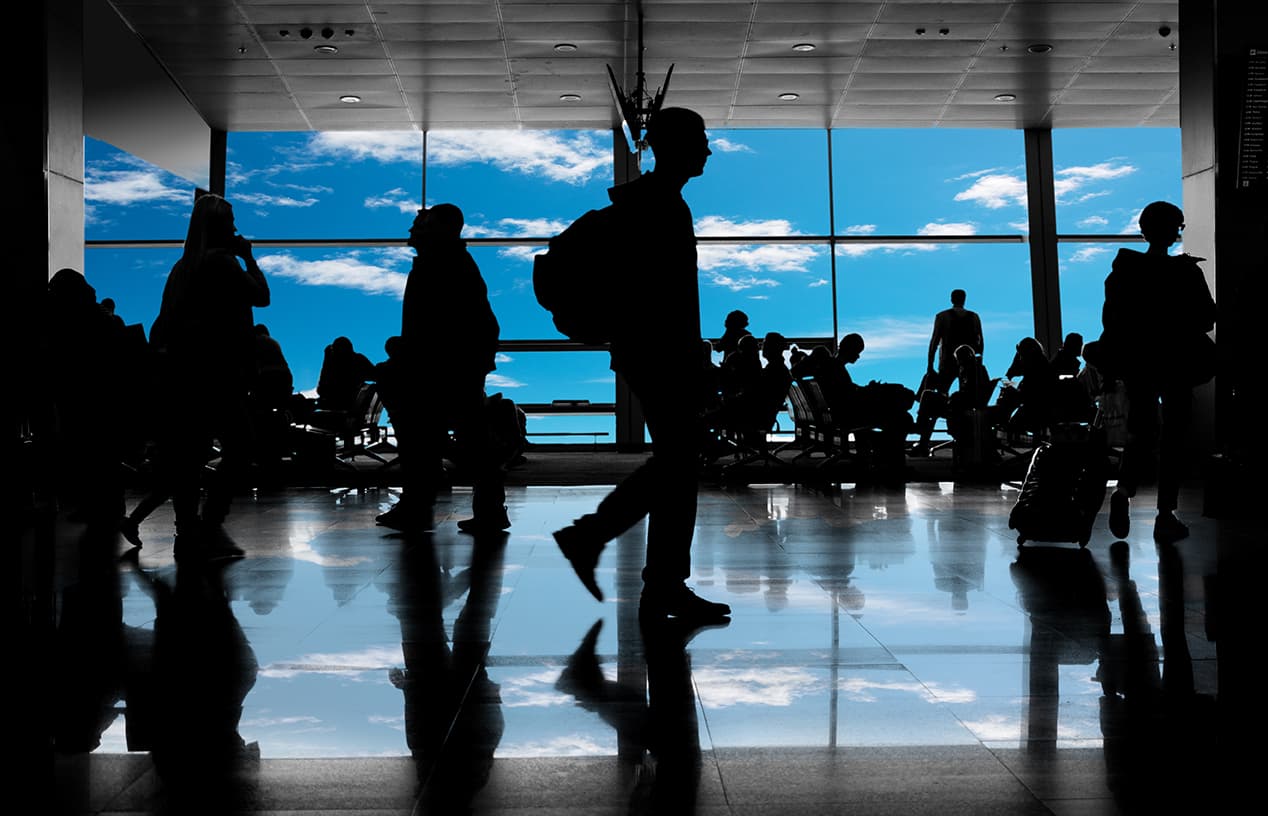Intelligence Analysis
Targeted Aviation Cybersecurity Threats Likely to Increase Risks to Businesses and Foreign Travel
29 JUL 2025
/
3 min read
Author
Intelligence Analyst II, Aviation

Key Takeaways:
- Cybercriminals are increasingly targeting the aviation sector, disrupting operations and compromising sensitive passenger data.
- Attacks exploit social engineering, outdated infrastructure, and third-party vulnerabilities to bypass security defenses.
- Proactive, multi-layered cybersecurity strategies are essential to protect aviation systems, travelers, and operational continuity.
Cybercriminal groups are increasingly targeting the aviation industry, including airlines, third-party vendors, airport systems, and travelers. While some of the recent cyberattacks have compromised passenger data, others have disrupted flight operations, posing a serious threat to one of the world’s most critical sectors, with far-reaching safety and economic consequences. These threats are further amplified by outdated infrastructure, highly interconnected systems and networks, and human vulnerabilities, creating a complex cybersecurity landscape.
Recent Incidents and Impact
Recent cybersecurity incidents span the globe, including:
- August 2024: A ransomware attack targeting Seattle-Tacoma International Airport (SEA) in Washington, which disrupted multiple airport services and compromised the personal data of around 90,000 employees and contractors. The Port of Seattle refused to pay USD 6 million in ransom, and the exfiltrated data was later leaked online.
- March 23, 2025: A ransomware attack targeting Malaysia’s Kuala Lumpur International Airport (KUL) resulted in significant disruptions to passenger check-ins and other critical systems. The attackers demanded a USD 10-million ransom, which Malaysia Airports Holding Berhad (MAHB) refused to pay.
- June 30, 2025: Hackers targeted the Qantas Airways (QF) contact center, which resulted in unauthorized access to a third-party customer servicing system and compromising customer data, including names, email addresses, phone numbers, and birth dates for more than 5.7 million people.
Common Targeting Tactics
In response to the recent cyberattacks, several government agencies have issued warnings to both the industry and the public. On June 27, the US Federal Bureau of Investigation (FBI) warned stakeholders about cybercriminal group Scattered Spider, highlighting their growing focus on targeting the airline sector through the use of social engineering techniques. The group has infiltrated several third-party vendors by impersonating employees or contractors, and deceiving IT staff into granting access to various systems. In some cases, they have been able to bypass multi-factor authentication (MFA) by tricking personnel into enrolling unauthorized devices into compromised accounts.
Common cyberattacks involve a range of techniques, including social engineering, malware, ransomware, and Distributed Denial-of-Service (DDoS) attacks. Social engineering tactics, such as phishing campaigns, often employ highly targeted and sophisticated methods to deceive individuals, especially those with privileged access. Malware attacks involve the insertion of malicious code into systems, which can compromise data, applications, or operating systems. These attacks usually happen undetected, with users unaware until significant damage has already occurred.
Ransomware is another tactic that typically prevents users from accessing systems or data, with attackers demanding payment to restore access. Meanwhile, DDoS attacks flood websites with excessive online traffic, largely through the use of automated bot networks. DDoS attacks can cause significant website slowdowns or complete outages.
Mitigation Recommendations
Human error remains one of the primary causes of cybersecurity breaches within the aviation industry. To mitigate this risk, individual travelers and organizations should adopt a proactive and layered approach.
- At the individual level, travelers should avoid using public Wi-Fi networks and instead use Virtual Private Networks (VPN) to protect personal and business data while in transit. Travelers can enhance their personal cybersecurity by enrolling in legitimate identity theft monitoring services, enabling MFA on personal accounts, and strengthening access controls. Individuals should closely inspect travel-related emails and messages for subtle signs of phishing, such as misspelled domains or unexplained attachments, and use official apps to manage bookings or to check flight details.
- Organizations should require MFA, encrypt sensitive data, conduct real-time threat monitoring, and regularly train employees on social engineering and emerging attack techniques, especially for staff working with third-party vendors and IT systems, as well as frequent travelers. Organizations must also regularly update outdated infrastructure and adapt cybersecurity policies to keep pace with evolving threats posed by AI and other technology advancements.
Cybercriminal groups are expected to intensify their targeting of the aviation industry across all areas of the sector, which may increase the scale and frequency of flight disruptions, compromise sensitive data, and threaten flight safety. Aviation industry partners should strengthen mitigation measures, including updates to procedures and business policies, as well as comprehensive training and awareness for business travelers. A multi-layered approach is essential to safeguard both information security and operational continuity across the industry.
Learn more about leveraging our industry-leading regional and subject matter experts for intelligence that helps your organization stay ahead of risks to your people and operations.
Related
Tags
Sharpen your
view of risk
Subscribe to our newsletter to receive our analysts’ latest insights in your inbox every week.
Intelligence & Insights
Intelligence
Worth Gathering
Employing a team of 200+ analysts around the world, Crisis24 is the only source you need for on-point, actionable insights on any risk-related topic.

Case Study
Partnering to Win: Elevating Safety Through Real-Time Intelligence
Discover how Crisis24 partnered with the Vigilant safety app to deliver high-confidence risk intelligence data to safeguard users.
January 28, 2026

Intelligence Analysis
Mozambique LNG Restart Faces Elevated Security Risks amid Persistent Insurgent Threats
As LNG operations resume in northern Mozambique, persistent insurgent activity underscores the need for robust security and risk mitigation.
By Crisis24 Africa Analysts and GardaWorld Information Services
January 27, 2026

Intelligence Analysis
Space-Based Supply-Chain Vulnerabilities Create Emerging Operational Risks
Increased reliance on satellites is changing how global supply chains work, improving efficiency, but also creating risks from signal problems, cyberattacks, and geopolitical tensions.
January 21, 2026

Case Study
How to Recover After an Active Assailant Incident
See how Crisis24 helps organizations recover after active assailant incidents through trauma care, continuity planning, and resilience-building. Learn more.
By Graeme Hudson
January 20, 2026



